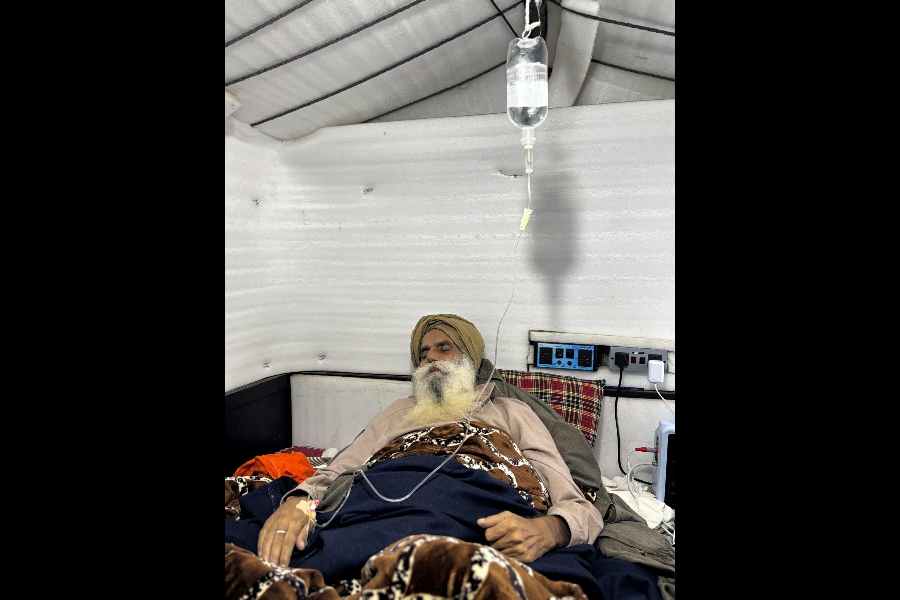The Supreme Court in a major verdict on Tuesday paved the way for granting permanent commission to women officers in Indian Navy, saying a level playing field ensures that women have the opportunity to overcome “histories of discrimination”.
The battle for gender equality is about confronting the battles of the mind and history is replete with examples where women have been denied their just entitlements under law and the right to fair and equal treatment in the workplace, the top court said.
The verdict comes exactly a month after the apex court had opened the doors for similarly placed women officers in the Army.
“A hundred and one excuses are no answer to the constitutional entitlement to dignity, which attaches to every individual irrespective of gender, to fair and equal conditions of work and to a level playing field,” the top court said, giving three months to the Centre to work out the modalities.
It said the Centre’s contention that certain sea-going duties were ill-suited to women officers was premised on sex stereotypes that male officers are more suited to certain duties by virtue of the physiological characteristics and to accept it would be to “approve the socially ascribed gender roles which a commitment to equal worth and dignity of every individual belies”.
A bench of Justice D.Y. Chandrachud and Justice Ajay Rastogi quashed the prospective effect of the Centre’s controversial September 2008 policy which restricted the grant of permanent commission to certain categories only.
“The stipulation in the policy letter dated September 6, 2008, making it prospective and restricting its application to specified cadres/branches of the Indian Navy shall not be enforced,” the top court said, while setting aside the implementation guidelines issued on December 3, 2008.
“The statutory bar on the engagement or enrolment of women in the Indian Navy has been lifted to the extent envisaged in the notifications issued by the Union Government on October 9, 1991, and November 6, 1998, under Section 9(2) of the Navy Act of 1957,” it held.
The 1991 notification envisaged that the restriction on the appointment or enrolment of women was lifted for specified cadres or branches of the Navy, while the 1998 notification made women eligible for appointment as officers in all the branches of the Indian Navy.
The top court said that all the short service commission (SSC) officers in the education, law and logistics cadres of Navy, who were currently in service, would be considered for the grant of permanent commissions (PCs).
“The right to be considered for the grant of PCs arises from the policy letter dated February 25, 1999, read with Regulation 203 of Chapter IX Part III of the 1963 Regulations. SSC women officers in the batch of cases before the High Court and the Armed Force Tribunal (AFT), who are presently in service shall be considered for the grant of PCs on the basis of the vacancy position as... on the date of judgments of Delhi High Court and the AFT or as it presently stands, whichever is higher,” it ruled.
The top court said the period of service after which women SSC officers would be entitled to submit applications for the grant of PCs would be the same as their male counterparts.
“A level playing field ensures that women have the opportunity to overcome their histories of discrimination with the surest of responses based on their competence, ability and performance,” it said, adding that in the context of the Armed Forces, specious reasons have been advanced by decision makers and administrators, which range from physiology, motherhood and physical attributes to the male dominated hierarchies.
Referring to the verdict of February 17, in which PC was granted to women officers in Indian Army, the bench said it was held that there was a need to change mindset if equality for women is to be achieved in the Armed Forces.
It rejected the submissions of Centre that certain avenues such as sea-sailing duties are ill-suited for women officers as there is no return to the base, unlike in the Army and the Air Force.
The top court also termed as “illusory and without any foundation” the argument that in vessels of a Russian origin which are deployed by the Indian Navy, no provision has been made for women as sailors and there are no bathrooms to accommodate them.
“Women officers have worked shoulder to shoulder with their men counterparts in every walk of service. The supposed explanations based on duties at sea or Russian vessels are devices adopted to justify an action which is not germane to the proper discharge of duties and the maintenance of discipline among members of the Armed Forces,” the bench said.
It said that these submissions which had been made by the additional solicitor-general, Sanjay Jain, appearing for the Centre, were plainly contrary to the policy letter of February 25, 1999, issued by the defence ministry to the Chief of the Naval Staff.
“The policy letter emphatically stipulates that women officers of all branches/cadres could be directed to serve on board ships both during training and subsequent employment in accordance with the exigencies of service. In the face of this communication, it is impossible to countenance a submission that women cannot sail alongside men sailors,” the bench said.










